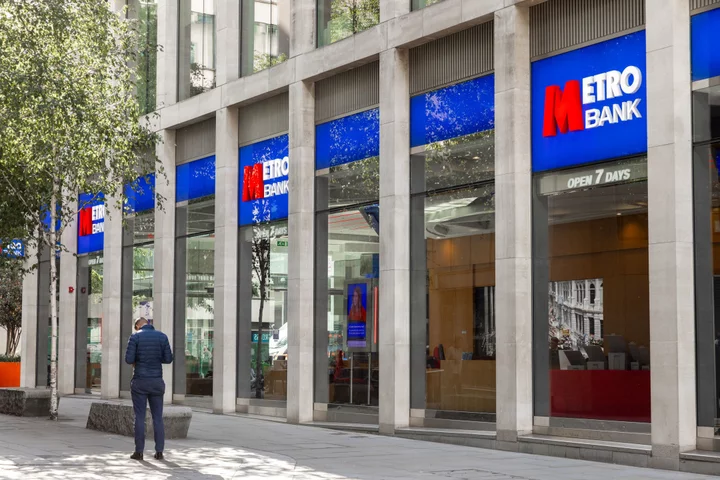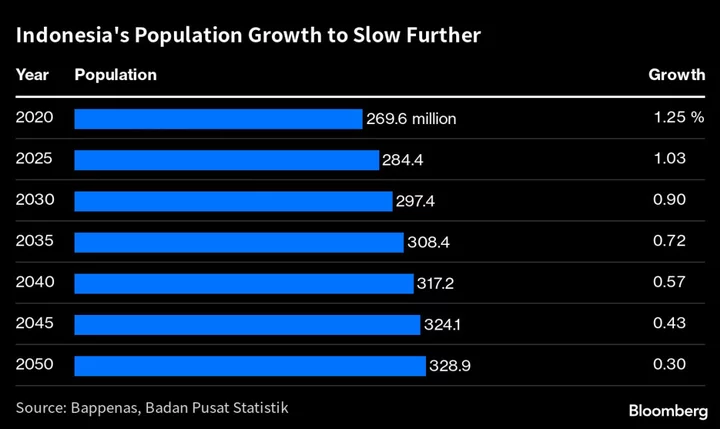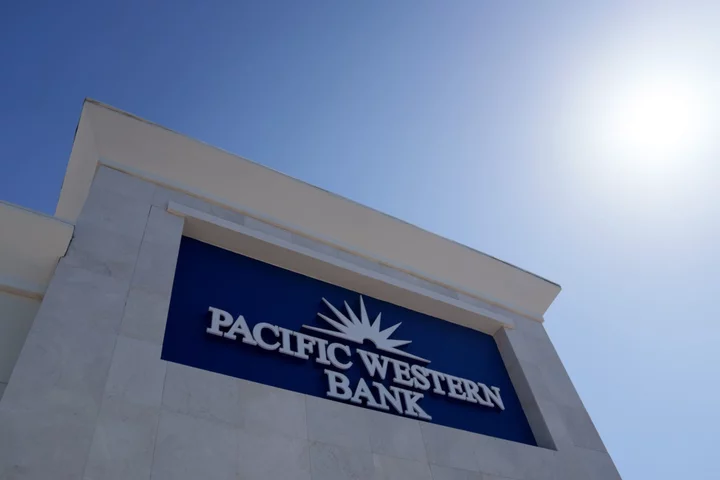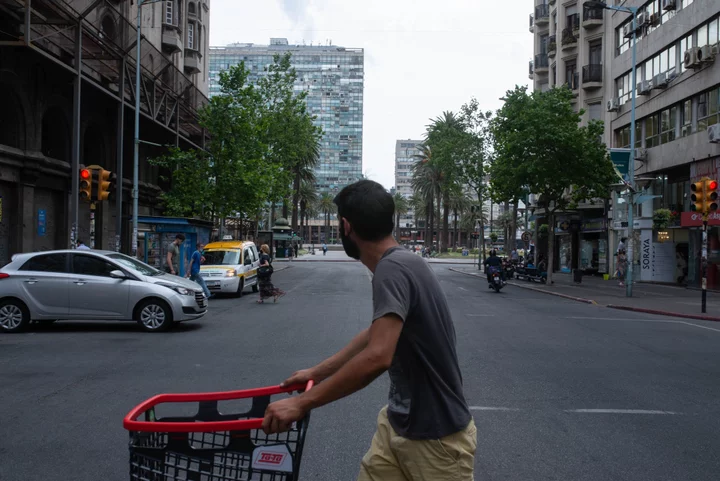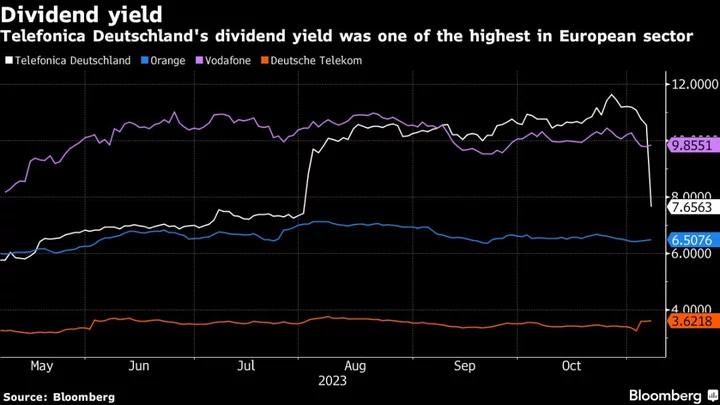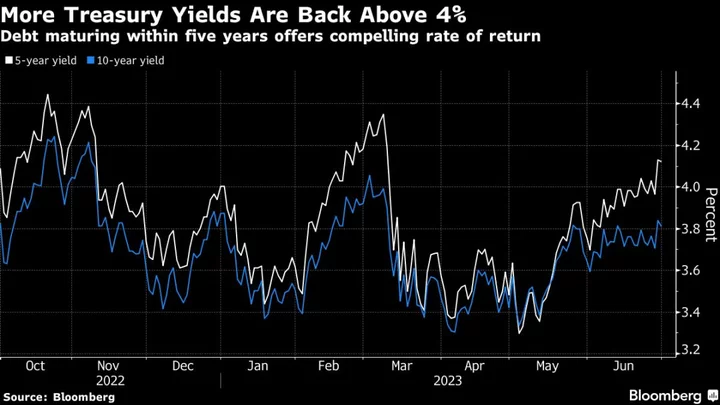Metro Bank Holdings Plc’s riskiest bonds gained the most on record on Monday after the bank announced a rescue deal that valued the notes above Friday’s heavily discounted trading levels.
The £250 million ($306 million) Tier 2 notes rose over 15 pence on the pound to around 47.5 pence as of 10:57 a.m. London time, according to data compiled by Bloomberg, as the UK challenger bank plans to force a 40% writedown of the notes and replace them with new higher-coupon bonds that mature six years later. The bonds are rising as the haircut would represent an improvement on Friday’s trading levels, when the notes were quoted with a 70% discount.
The rescue deal means that for now, the majority of the debt will not be impaired. The subordinated bonds will be exchanged for new notes due in 2034 with a 14% coupon, according to a statement from the bank on Sunday. Meanwhile, the senior notes, which were trading at around 50 pence on Friday rose around 30 pence to 88 pence on the pound as of 10:57 a.m. London time, following the news they will see their maturity extended without a haircut.
The restructuring was agreed after a frantic weekend of negotiations to bolster the balance sheet of the ailing lender. Jaime Gilinski, the Colombian billionaire who was already the bank’s largest investors, will inject fresh cash and take a 53% stake.
As part of the deal, its senior notes due in 2025 will be extended through to 2028, with a step up in coupon to 12%, the statement said. Moreover, the lender will issue additional £175 million of these new senior notes due in 2028, with the backing of existing investors.
Metro Bank Inks £925 Million Funding; Gilinski Boosts Stake
While Metro is one of the biggest banks in the UK to force losses on creditors since the financial crisis, it’s not the first time subordinated bondholders of British banks have been confronted with steep losses: in 2010, tax-payer owned banks Northern Rock and Bradford & Bingley bought back £2.4 billion of their subordinated debt at large discounts, imposing £1.5 billion of losses on investors, according to a report by the National Audit Office.
And in 2017, Co-operative Bank was taken over by some of its creditors — including Silver Point Capital, GoldenTree Asset Management, BlueMountain Capital, Anchorage Capital Group and Cyrus Capital Partners — as it failed to find an external buyer. The deal involved a debt-for-equity swap for junior bondholders.
Last month, Metro’s bonds started dropping after the UK challenger bank flagged concern that regulators won’t grant a long-sought approval to use internal risk models for residential mortgages this year. Due to bail-in rules, the senior notes due 2025 would no longer have been counted toward key regulatory requirements from next year if they weren’t extended, because they’d be too close to maturity.
Meanwhile, the bank’s subordinated notes due 2028 were losing their treatment as tier 2 capital — a layer that a bank needs to keep as part of required reserves. The nature of the notes is that if they mature in five years or less, they lose a fifth of their regulatory value every year, but the interest payments remain the same. Also, the bank skipped a call option earlier this year on the risky notes, and because of that the coupon was reset to 9.139% from 5.5%, exacerbating the lender’s capital woes.
Holders of more than 74% of both bonds — all of those that the lender contacted over the weekend — have signed up to the deal, Chief Executive Officer Daniel Frumkin said in a conference call on Monday. That’s close to the 75% threshold needed to make the terms binding for all investors.
If Metro doesn’t get enough support by Friday, the haircut will step up to 45% for the subordinated notes, while a 5% one will also be applied to the senior bonds, according to the statement.
(Updates bond prices, add CEO’s comment in penultimate paragraph.)

